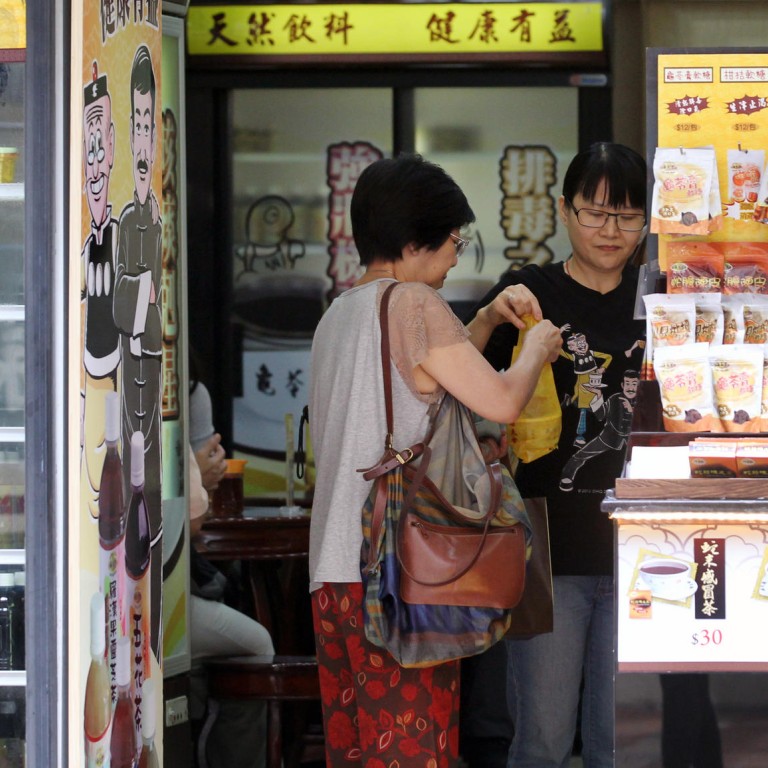
Video of herbal shop apparently removing mould from jelly ‘is a fake’
Centre of Food Safety looks into mainland video smearing reputation of Hoi Tin Tong after popular herbal chain makes police report
The city's food-quality watchdog will look into a mainland video clip purporting to show an employee at a popular herbal chain store cleaning off mould-covered jelly before selling it as fresh.
The Centre for Food Safety announced its investigation yesterday after Hoi Tin Tong filed a police report over the "misleading" video, which was shown on a prime-time Guangdong television programme on Tuesday night and later circulated online.
Video: Controversial clip allegedly showing mould-covered jelly being prepared for sale.
Former shareholder Choi Kwok-keung said he had supplied the video to the TV station and claimed it showed why he had severed his connection with the company.
He now works for a rival producer of herbal jelly on the mainland. Yesterday, he insisted the footage was genuine.
But Hoi Tin Tong director Ng Yiu-ming said the video was faked and misleading. "It was not even filmed inside any of our shops," he told a press conference in Guangzhou. "We don't carry steel trays as shown in the clip."
Ng said the company had since submitted evidence to Huizhou police for investigation.
The video purported to show long-life herbal jelly in plastic cups being transferred to pottery cups before being sold as fresh, and mould-covered jelly being rinsed with tap water and cleansed with a sponge to extend its shelf life.
The Centre for Food Safety said that between 2010 and 2012, the centre took 20 samples of herbal jelly at import and retail levels for regular microbiological and chemical tests. All results were satisfactory, it said.
Ng said a plastic cup of long-life jelly sealed with a film could be stored for a year and sold for HK$35 in Hong Kong and 20 yuan (HK$25) on the mainland. Fresh jelly, in pottery cups, cost HK$50 and 35 yuan, and had a shelf life of seven days.
His explanation was disputed by Choi, who formerly held 20 per cent of the company's shares.
Choi said he quit the company in June after learning that long-life jelly was being sold as fresh to save on transport costs. He said the practice was stopped in Guangdong the same month, but had continued in Hong Kong until last month.
Choi said the company as a whole pocketed at least four to five million yuan a month from more than 100 shops in Guangdong province.
"The practice to get rid of the mould-laden herbal jelly has been going on for years, but it is something I was not authorised to handle. The issue was always brushed aside in management monthly meetings," he said.
Hoi Tin Tong's Causeway Bay retail store was busy as usual yesterday. But customers said they had not yet heard of the news.
"I didn't know, but now I am starting to worry," said Heidy Tang, who had ordered herbal tea. "Hoi Tin Tong is such a big brand. If they are guilty of misconduct, I would feel less confident in Hong Kong's food safety."

